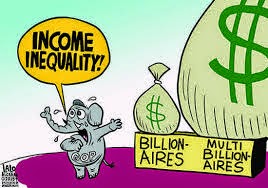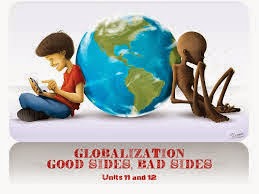Personal Observations
Feb 13, 2015
It's one thing to argue the economics of inequality. The reality is that there are different and conflicting interpretations of the data and the theories. There is ambiguity. Personal biases play in. Some feel the most important thing is to allow motivation to be undisturbed by taxation, that opportunity abounds, and others feel the wealthy should help the underprivileged in one way or another.
It's entirely another thing to experience the realities of the world around us on a daily basis. Sometimes, what we see with our own eyes, in the halls and on the streets of our city, on the back roads of the world, tells us more, with no ambiguity. There is a reality.
Yesterday, I had the privilege to attend a San Francisco Symphony performance. Herbert Blomstedt, now about 87, was conducting Sibelius and Mozart.
I found a hall filled to about 2/3 capacity at 10am on a weekday, tickets very cheap ($40) at this "open rehearsal," in which we could see and hear this elderly icon graciously instruct his large orchestra, and then conduct them through the complex and beautiful compositions.
I felt deeply moved by the music and by the whole scene. Blomstedt, without a glance at his music, so clearly calling out with his hands to the oboes, then the bassoons, and to each section of instruments, calling up their volumes in one and down in another. The musicians, each with an accomplished specialty, some in their twenties, some in their seventies, each in complete command of their unique instruments and roles. All of it coming together in a way that transcends the imagination of just how--how the composer dreamed it up and wrote it down, a different score for each of the dozens of instruments and individual parts; how the conductor memorized it and knows each part, adding his own interpretation; how the musicians have been able to devote their entire careers to playing a viola or a french horn, with excellence. All for our pleasure, and for a short period of almost touching the essential beauty of life.
As I listened and watched, I considered the cost of all this--the hundreds of musicians and support staff coming from all over the Bay Area, maintenance of the great hall, and all of it. The hundreds of years of devotion to these exquisite compositions.
I reflected on how fortunate I am, having the privilege to be touched by such accomplishment and beauty. I thought of those in The Ukraine, in Nigeria, in Syria and Iraq, in rural India, and in the homeless shelters of our own cities, some only a few blocks from this great hall. We have 45 million in poverty in our country. I imagine none of them would regard even the $90 for two tickets to this performance to be inconsequential in their daily survival needs.
How can we avoid being reminded vividly of the privilege of our lives here, realizing that much of the world will not have this opportunity in their lifetimes? Here in San Francisco, one of the wealthiest cities in the US, the wealthiest country in the world. Maybe it's easy to be remain oblivious, surrounded as we are by such privilege and wealth.
Branko Milanovic, noted scholar of inequality at the World Bank, has analyzed available global data to conclude the following: some 50-60% of your economic destiny today is pre-determined by the country in which you happen to have been born; another 20% is pre-determined by the wealth of your parents. Thus, almost 80% of your economic destiny is pre-determined. And, he speculates that when the data permits analysis of gender, race, religion and other factors which are givens at birth, the percentages will be far higher.
For those who haven't seen this conclusion before, it doesn't mean there is no chance for pulling oneself up by the bootstraps, even if one was born of color, female, in Uganda, of poor parents, or an equivalent set of pre-determined obstacles. Some do. However, the data clearly shows that the "chance" of your "making it" with such birth handicaps is far lower than for the rest of us. It is "almost" impossible. My parents were relatively poor, but I was born in the USA. I'm male, Caucasian, Protestant. And, that was a very different time, a very different political scene, and a very different economy than today. There was more opportunity.
Some in this area who live in poverty, some who are working with very tight budgets, some who have been forced to move to the distant suburbs of our San Francisco by our increasingly unaffordable housing, many, many, will not be able to experience the Symphony. Ever. And, as Milanovic says, the vast majority of those born in the wrong country of poor parents, never will. Ever.
I have a wonderful young couple who clean my home biweekly. They are immigrants. They work very hard, do an excellent job for me, always willing to do anything extra that I need. As I was recording these thoughts today, the husband arrived , and with great trepidation took me aside to ask whether I could consider an advance on future cleaning of my home, so that he could buy the little things they need for the new baby they are soon expecting.
Branko Milanovic: http://www.demos.org/blog/11/14/14/income-inequality-interview-branko-milanovic






















